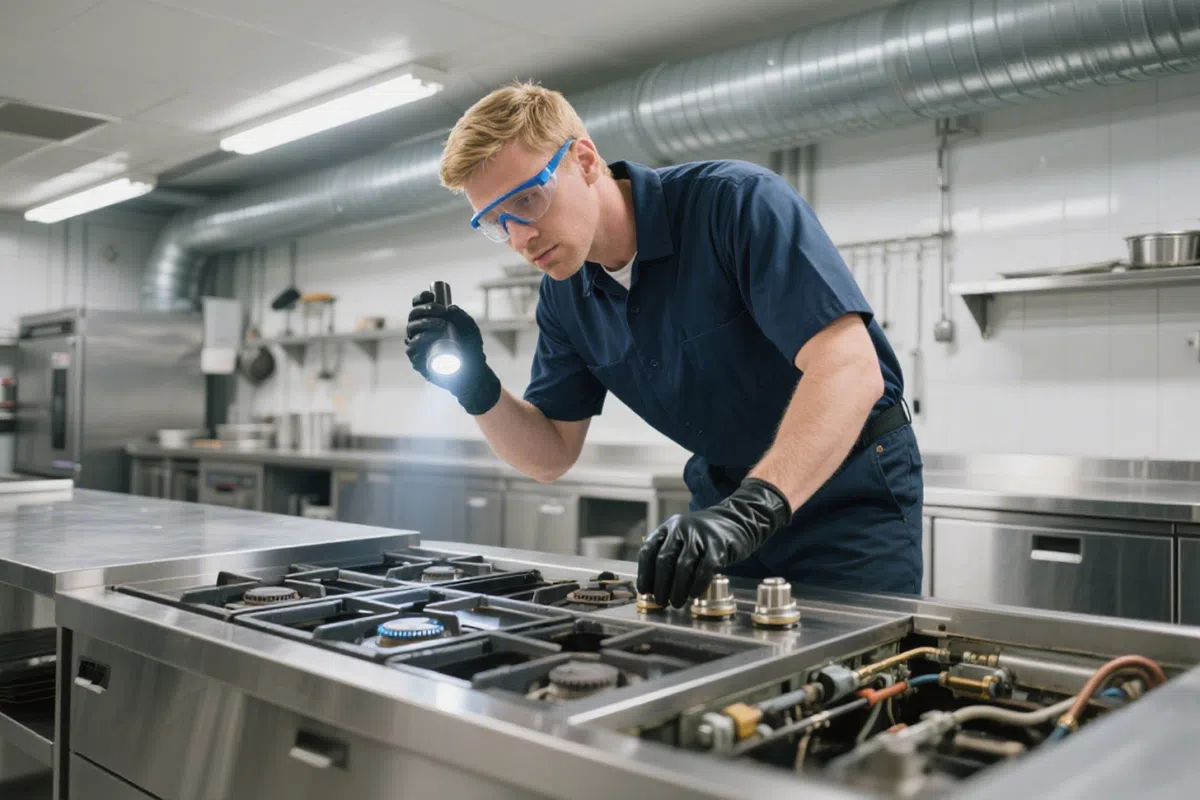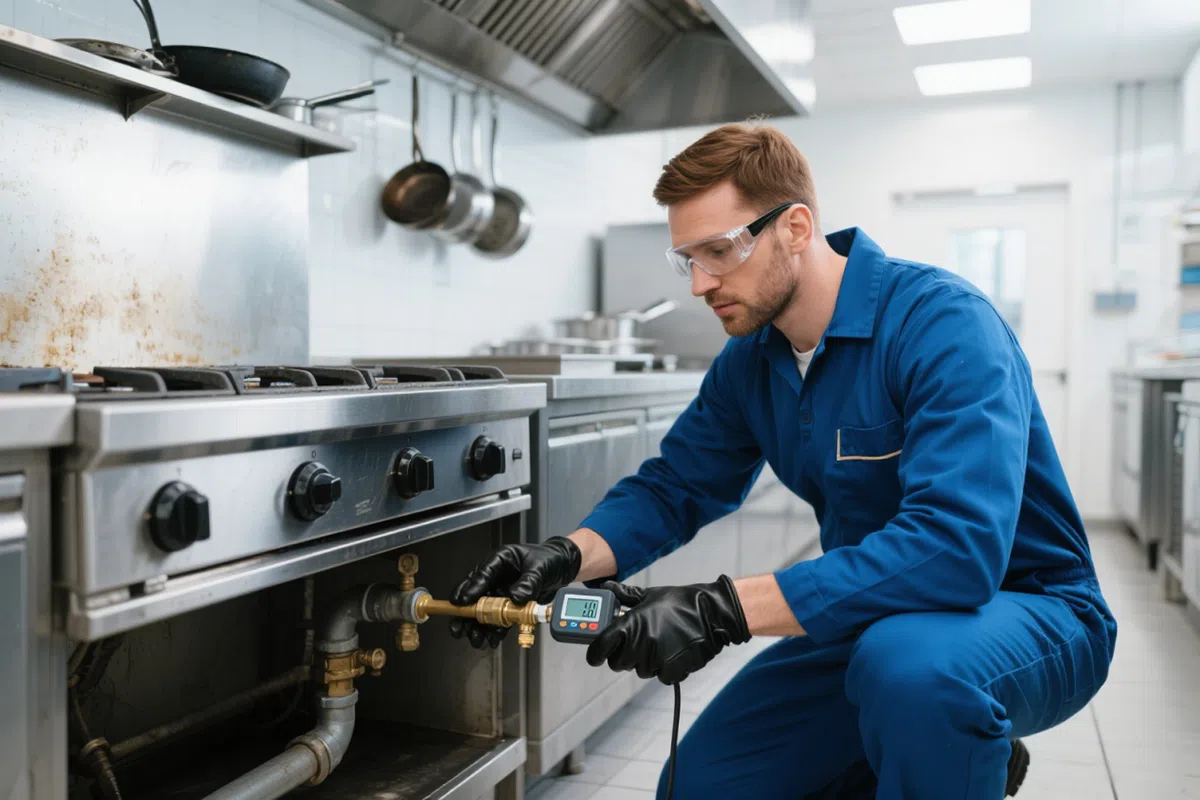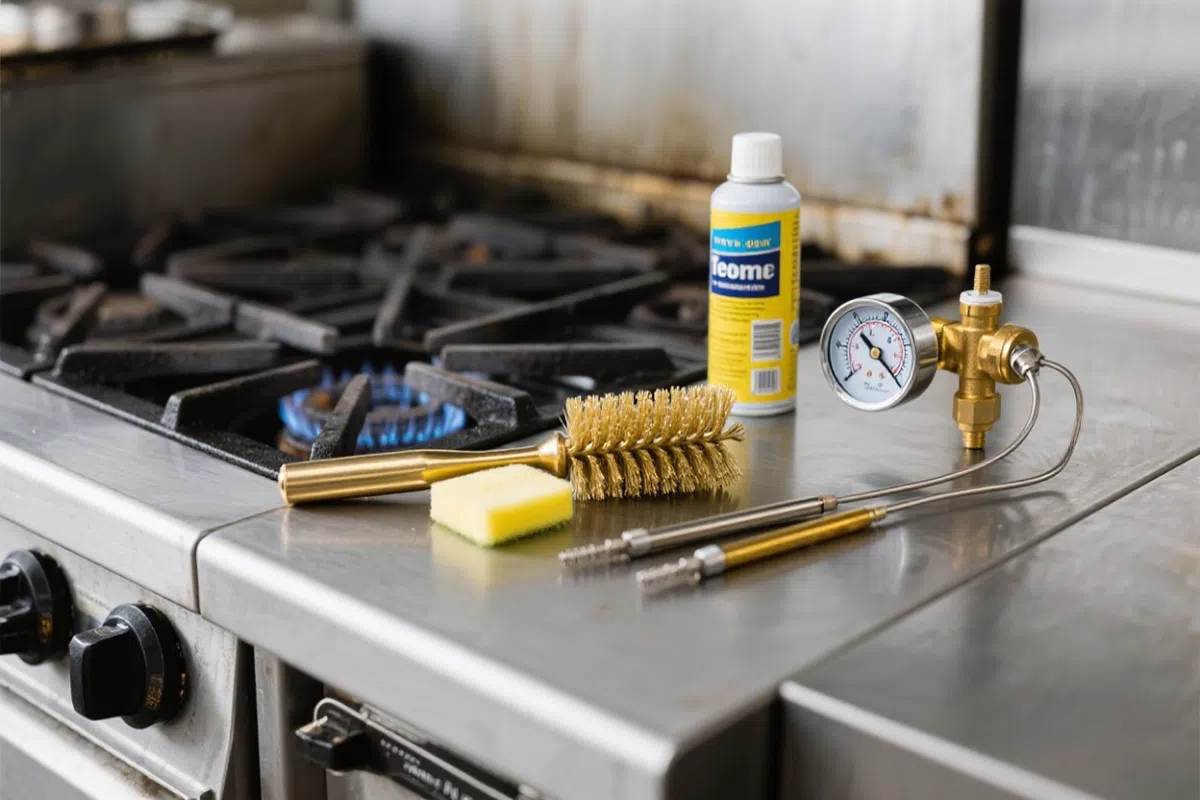Your commercial gas stove is the heart of your kitchen. But neglected maintenance leads to costly repairs and downtime. Want to keep it running smoothly for years?
Regular maintenance of commercial gas stoves includes cleaning burners, checking gas lines, and inspecting ignition systems. Proper care prevents breakdowns and extends equipment life, saving you money long-term.

Maintenance might seem complicated, but let’s break it down into simple steps. Follow these guidelines to protect your investment and avoid kitchen disasters.
What Maintenance Does a Gas Stove Need?
A poorly maintained gas stove risks gas leaks and uneven heating. Don’t wait for problems to appear – proactive care is cheaper than emergency repairs.
Commercial gas stoves require weekly burner cleaning, monthly gas pressure checks, and quarterly professional inspections to ensure proper combustion and safety compliance.

Three-Level Maintenance Approach
| Frequency | Tasks | Importance |
|---|---|---|
| Daily | Wipe surfaces, check flames | Prevents buildup |
| Weekly | Deep clean burners, check knobs | Maintains efficiency |
| Monthly | Test safety valves, inspect hoses | Ensures safety |
Critical components needing regular attention:
- Burner Ports: Clogged ports cause uneven flames. Clean weekly with:
- Stiff brush
- Compressed air
- Approved cleaner
- Ignition System: Faulty ignition wastes gas. Test daily:
- Should spark immediately
- No delayed ignition
- Gas Connections: Check monthly for:
- Loose fittings
- Wear signs
- Unusual odors
What Tools and Supplies Are Needed for Maintenance?
Trying to clean with wrong tools can damage your stove. Having the right supplies makes maintenance faster and more effective.
Essential maintenance tools include brass brushes, non-abrasive cleaners, spare thermocouples, and pressure gauges. Always use manufacturer-approved materials to avoid voiding warranties.

Maintenance Toolkit Breakdown
Cleaning Supplies
- Brass wire brushes (never steel)
- Commercial degreaser
- Microfiber cloths
- Toothpicks for ports
Testing Equipment
| Tool | Purpose |
|---|---|
| Manometer | Checks gas pressure |
| Leak detector | Finds gas escapes |
| Multimeter | Tests electrical components |
Safety Gear
- Heat-resistant gloves
- Safety goggles
- Fire extinguisher (ABC type)
Always keep replacement parts like:
- Burner caps
- Ignition electrodes
- Knob gaskets
How to Clean a Commercial Gas Stove?
Grease buildup doesn’t just look bad – it’s a fire hazard. Proper cleaning prevents flare-ups and keeps temperatures accurate.
Turn off gas supply before cleaning. Remove grates and burner caps, soak in degreaser, then scrub ports with brass brush. Dry completely before reassembly to prevent corrosion.

Step-by-Step Deep Cleaning
- Preparation
- Turn off gas valve
- Cool completely
- Remove all removable parts
- Cleaning Process
- Soak parts in warm, soapy water
- Use degreaser on stubborn stains
- Clear clogged ports with:
- Toothpicks
- Compressed air
- Specialized cleaners
- Drying & Reassembly
- Air dry completely
- Check for moisture in gas lines
- Verify proper alignment when replacing parts
Common Mistakes to Avoid
- Using steel wool (scratches surfaces)
- Harsh chemicals (damage seals)
- Improper drying (causes rust)
Routine Maintenance Tasks for Commercial Gas Stoves
Consistent maintenance is cheaper than repairs. Set reminders for these critical tasks to avoid expensive breakdowns.
Create a maintenance schedule including daily visual checks, weekly deep cleaning, and monthly professional inspections. Document all service for warranty compliance.
Maintenance Timeline
Daily
- Check flame color (should be blue)
- Verify even heating
- Clean spills immediately
Weekly
- Full burner cleaning
- Tighten loose knobs
- Test ignition timing
Monthly
| Task | Method |
|---|---|
| Leak test | Soapy water on connections |
| Pressure check | Use manometer |
| Thermocouple test | Ensure proper shutdown |
Quarterly
- Professional inspection
- Ventilation check
- Full component testing
Conclusion
Regular maintenance prevents costly repairs. Follow this straightforward schedule to keep your commercial gas stoves safe, efficient, and reliable for years.
